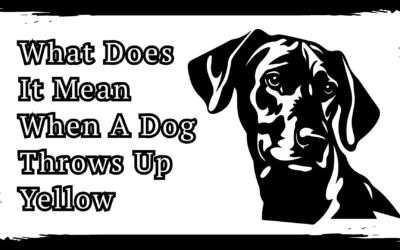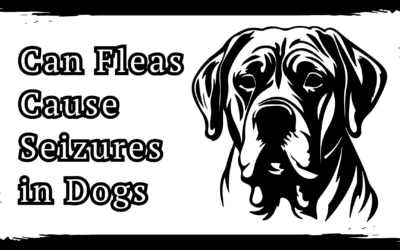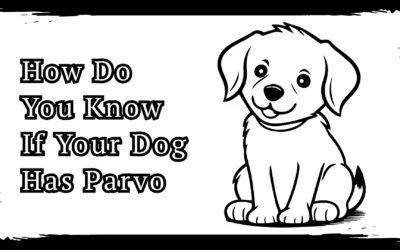Have you noticed your dog chewing on his nails and wondered why? It might look odd or even funny, but nail biting is often a sign that something’s wrong. From itchy paws to stress or even pain, your dog could be trying to tell you something.
Dogs bite their nails for many reasons—allergies from food, pollen, or detergent; overgrown, ingrown, or broken nails; infections, wounds, parasites, or fungus in paw pads. Sometimes, it’s due to boredom, stress, or anxiety, just like humans, or because they need a trim.
The good news? Most causes are treatable with a little care and attention. Let’s explore the common reasons behind this habit and how you can help.
Overgrown Nails
If your dog’s nails are too long, they can feel uncomfortable or even painful when walking. This may cause your dog to chew at them to get relief. Keeping their nails trimmed regularly can help stop the biting and make your dog feel much more comfortable and happy.
You can also check your dog’s age by using this free calculator.
Allergies
Dogs can have allergies just like people. Pollen, dust, grass, or even certain foods can make their paws itchy. If your dog keeps biting their nails or licking their feet, they might be trying to soothe the itch. A vet can help figure out what’s causing it and offer treatment.
Parasitic Infections
Tiny pests like fleas, ticks, or mites can bite your dog and cause intense itching, especially around their paws and nails. Your dog might chew their nails trying to stop the itch. A quick check-up and parasite treatment from the vet can give fast relief and protect your dog.
Nail Or Claw Injuries
Sometimes dogs hurt their nails by running, jumping, or getting them caught. This can be painful, and they may bite or lick the area to feel better. If you see limping, bleeding, or swelling, it’s best to visit the vet. Quick care helps prevent infection and speeds up healing.
Claw Diseases And Medical Conditions
Some health issues affect your dog’s nails, making them weak, swollen, or painful. Diseases like diabetes or autoimmune problems can cause nail changes. Your dog might chew their nails to ease the discomfort. A vet can find the root cause and give the right treatment to help your pup.
Fungal And Bacterial Infections

Infections around the nails can make them itchy, red, or sore. Your dog may start biting to deal with the pain. Fungal nails may feel rough or soft, while bacterial ones may swell or ooze. A vet can treat these quickly with medicine, bringing comfort back to your dog.
Anxiety And Boredom
Dogs get stressed or bored just like we do. When left alone too long or not exercised enough, they might bite their nails to cope. Chewing can become a habit. Try giving them fun toys, walks, or cuddles. A busy, happy dog is less likely to chew their paws.
Compulsive Disorders
Some dogs develop obsessive habits like constant nail chewing. It may start from stress, fear, or big life changes. If your dog bites their nails nonstop, even when calm, it could be a behavior issue. A vet or dog trainer can help with calming routines or behavior therapy.
Read More: Does My Dog Know I’m Sick – Top 7 Signs Your Dog Loves You
Presence Of Foreign Objects
Sometimes small things like grass, thorns, or splinters get stuck in your dog’s paw or between their toes. This can feel annoying or painful, causing them to chew or lick constantly. Gently check their paws often and keep them clean after walks to prevent this from happening.
Skin Conditions
Dogs with dry skin, dermatitis, mange, or allergies may feel itchy around their paws and nails. This leads to biting, licking, or chewing. You might also notice redness or scabs. A vet can check for skin problems and suggest treatments like medicated shampoos, creams, or allergy relief for your pup.
Is It Normal For a Dog To Chew Their Nails?
Occasional nail chewing is normal grooming. But if your dog is chewing often, or seems upset, it may mean something’s wrong, like pain, infection, stress, or itchy skin. It’s best to watch closely and visit a vet if the chewing becomes frequent or leads to red or sore paws.
Also Read: Should I Put My Dog Down If He Is Still Eating – 17 Signs
How Do I Get My Dog To Stop Chewing Their Nails?
Identify The Cause
Why is your dog biting their nails? It could be allergies, stress, injury, or long nails. Watch their behavior closely and check their paws. Knowing the root problem helps you fix it the right way—whether that’s grooming, treatment, or a change in routine.
Provide Distraction
Sometimes dogs chew their nails out of boredom. Give your pup fun toys, puzzle feeders, or safe chew items to keep them busy. More playtime, exercise, and attention can take their mind off biting and make them feel more relaxed and entertained throughout the day.
Trim Nails Regularly
Long nails can hurt and lead to chewing. Trim your dog’s nails often, or have a groomer do it. If you hear clicking on the floor, it’s time for a trim. Short nails are more comfortable and reduce your dog’s need to chew them for relief.
Use Anti-Chew Sprays
Anti-chew sprays taste bitter and help stop nail biting. Spray a safe, vet-approved product on your dog’s paws. The bad taste teaches them to stop chewing. Be sure to check for allergies or skin issues first, and always follow product instructions for safety.
Train And Reward
Positive training works! Gently correct chewing, then reward your dog when they stop. Use treats, kind words, or belly rubs. Over time, your pup learns that not chewing brings good things. Patience and consistency are key for teaching better behavior without fear or punishment.
Anxiety Relief
If stress or anxiety is the cause, help your dog relax. Use calming products like wraps, soothing music, or natural supplements. Keep a steady routine and give them love and comfort. In severe cases, your vet may suggest anxiety meds or working with a behavior expert.
Seek Professional Help
When nail chewing doesn’t stop, it’s time to call in the pros. A vet can rule out infections, injuries, or diseases. If it’s behavioral, a dog trainer or behaviorist can help. Don’t wait—getting help early brings your pup comfort and gives you peace of mind.
Dog Biting And Pulling Nails
If your dog is pulling or tearing at their nails, it might mean something’s bothering them, like pain, infection, or injury. This can lead to bleeding or broken nails. It’s best to check their paws closely and visit the vet to stop the issue before it gets worse.
How Can I Get My Dog To Stop Chewing His Nails
To help your dog stop biting his nails, first find the cause. Then try things like regular grooming, toys, bitter sprays, or behavior training. Keep your dog active and loved. If chewing continues, a vet visit will help find the right solution and keep your pup comfortable.
Dog Biting Nails And Licking Paws
Chewing nails and licking paws often go together. It can be from allergies, itchy skin, anxiety, or something stuck in the paw. Watch for swelling or redness. A vet can help find out what’s wrong and recommend the right treatment to stop the licking and nail biting.
Dog Bites Nails At Night
Yes, if your dog starts biting their nails more at night, it could be from boredom, stress, or pain that gets worse when they’re resting. Give them a calm bedtime routine, a soft space to sleep, and a chew toy. If it continues, a vet check can help.
Do Dogs Bite Their Nails To Trim Them
Yes, some dogs naturally bite their nails to keep them short. But this doesn’t always work well and can hurt if they chew too much. It’s safer to trim their nails regularly to avoid discomfort and stop them from turning nail care into a bad habit.
Why Is My Dog Biting His Foot
Biting a foot can mean many things—something is stuck, the paw is itchy, or there’s pain. Look between the toes and check the nails. If there’s swelling, redness, or limping, your dog may need vet care to treat the cause and bring back comfort.
Dog Biting Nails Allergies
Allergies often make dogs chew at their nails and paws. It could be caused by food, grass, or dust. Look for other signs like licking, red skin, or ear infections. A vet can help identify the allergy and give medication or a diet change to help.
Dog Nail Biting Treatment
Treatment depends on the cause. It might include allergy medicine, nail trimming, infection care, stress relief, or training. Start by checking their paws and talking to your vet. With the right care plan, your dog can stop biting and get back to feeling their best.
FAQs
Is It Normal For Dogs To Chew Their Own Nails?
Some nail chewing is normal, but frequent biting may mean pain, stress, allergies, or something stuck in the paw.
How Do I Get My Dog To Stop Biting Their Nails?
Find the cause—like long nails, boredom, or infection. Trim regularly, distract with toys, and ask your vet if it continues.
How To Calm Your Dog For Nail Cutting?
Use gentle words, soft music, treats, and go slow. Calm wraps and short sessions help make nail trimming less scary.
Is It Normal For Dogs To Bite Their Paws?
Sometimes it’s normal, but constant paw biting may mean allergies, dry skin, stress, or something painful stuck inside.
What Is Your Dog Trying To Warn About When They Lick Their Paws?
Paw licking may be a sign of allergies, irritation, pain, or stress. It’s a signal your dog needs help.
Can I Put Vaseline On My Dog’s Paws?
Yes, you can use a small amount of Vaseline to soothe dry paws, but don’t let your dog lick too much of it.
How To Get a Dog To Stop Biting Its Paws?
Find the cause, like allergies or boredom. Clean paws, offer toys, and see a vet if biting continues or worsens.
Is There a Home Remedy For Dogs Licking Paws?
Try rinsing paws with cool water, using coconut oil, or soaking in chamomile tea. Always ask your vet first.
Will Benadryl Help Dogs Licking Paws?
Benadryl may help with allergies, but ask your vet for the right dose before giving it to your dog.
How Do You Soothe a Dog’s Itchy Paws?
Clean with cool water, apply dog-safe balm or aloe, and avoid walking on grass or hot surfaces that may irritate them.
Conclusion
Nail biting in dogs may indicate underlying issues such as stress, allergies, or discomfort. With proper care, attention, and guidance from a veterinarian, most causes can be effectively managed. Early intervention and consistent grooming are key to preventing further complications. By observing your dog’s behavior closely and responding with care, you can help restore their comfort and well-being. Ultimately, a healthy and contented dog contributes to a peaceful and happy home environment.




